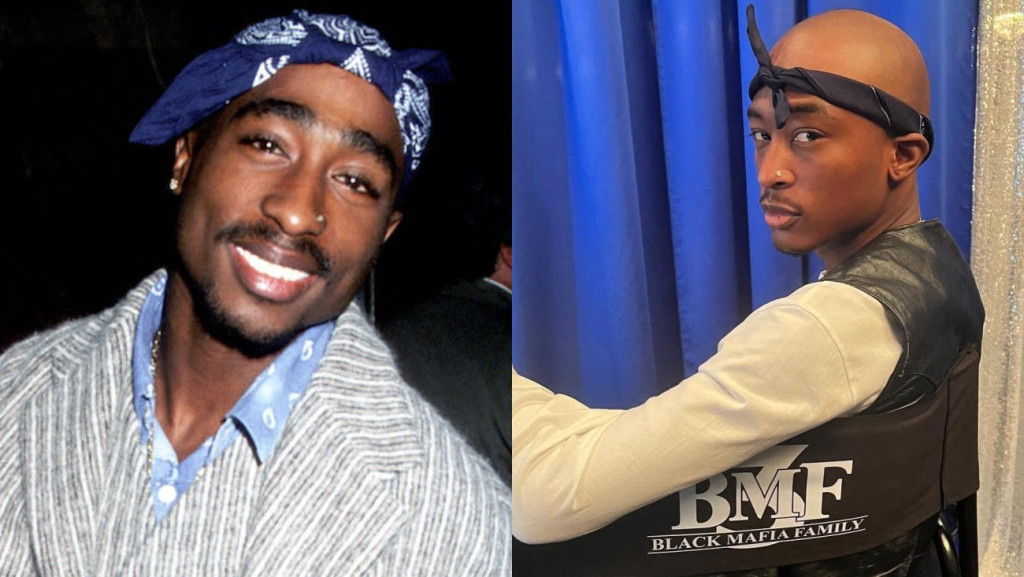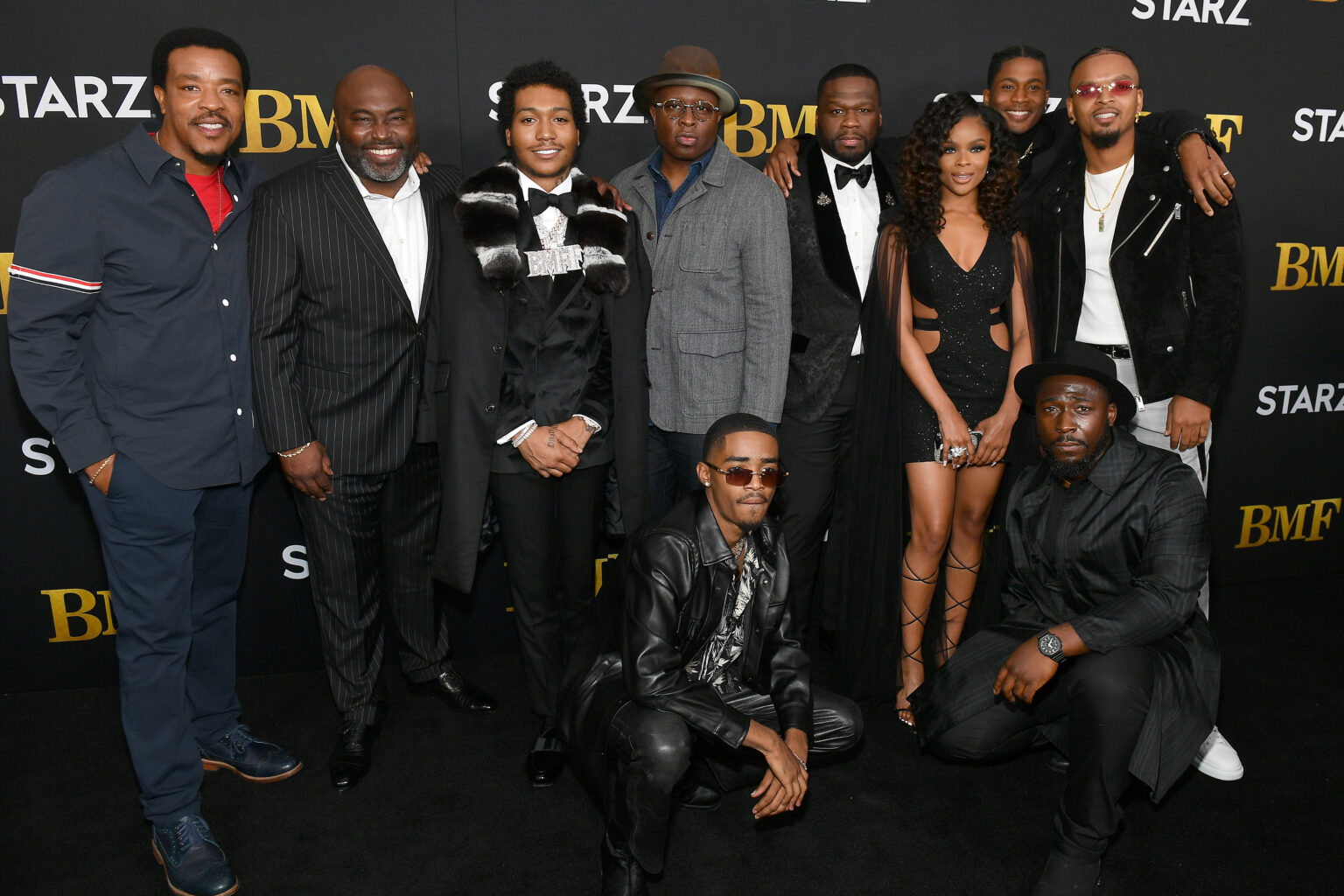Unveiling The Hidden Ties: Tupac Shakur And The Black Mafia Family
Did the life of a rap icon truly intersect with the shadowy world of organized crime, leaving an indelible mark on both hip-hop and the criminal underworld? The story of Tupac Shakur and his connection to the Black Mafia Family (BMF) reveals a complex and often-overlooked narrative, one that illuminates the blurred lines between artistic expression and illicit activity. At the heart of this exploration lies the intricate relationship between one of hip-hop's most influential figures and the infamous criminal organization, the Black Mafia Family. This relationship not only shaped Tupac's impact on hip-hop culture but also left an indelible mark on the criminal underworld.
Examining Tupac's life, experiences, and associations provides insight into the cultural phenomenon that continues to resonate today. The rise of the Black Mafia Family and its implications in shaping the cultural landscape of the late 20th century and beyond is a story that intertwines with the life of Tupac Shakur. The investigation into the intersection of fame, crime, and music offers a unique lens through which to understand the complexities of this era. Tupac's legacy is inextricably linked to the broader trends in the industry, including the rise of organized crime's influence in hip-hop.
| Attribute | Details |
|---|---|
| Name | Tupac Amaru Shakur |
| Birth Date | June 16, 1971 |
| Birth Place | East Harlem, New York, USA |
| Death Date | September 13, 1996 |
| Occupation | Rapper, Actor, Activist |
| Associated Acts | 2Pac, Thug Life, Outlawz |
| Notable Albums | 2Pacalypse Now, Strictly 4 My N.I.G.G.A.Z..., Me Against the World, All Eyez on Me, The Don Killuminati: The 7 Day Theory |
| Filmography | Juice, Poetic Justice, Above the Rim, Gridlock'd, Gang Related |
| Activism | Advocate for social justice, black empowerment, and against police brutality |
| Controversies | Legal issues, feuds with other rappers, and public scrutiny of his lifestyle. |
| Legacy | One of the best-selling music artists of all time, influencing hip-hop culture for decades. |
| Reference | Biography.com - Tupac Shakur |
The connection between Tupac Shakur and the Black Mafia Family (BMF) is often discussed but seldom fully explored, yet it offers crucial insights into the dynamics of the hip-hop industry and the insidious influence of organized crime. Founded by Demetrius "Big Meech" Flenory and Terry "Southwest T" Flenory, BMF rose to prominence in the late 1980s and into the 1990s as a major drug trafficking organization. Their operations, primarily based in Atlanta, Georgia, soon expanded, generating vast wealth and extending their reach into the music industry. This relationship between Tupac and BMF became a defining aspect of the era, influencing not only his music but also the broader hip-hop culture.
- Wine Label Removal Expert Tips Methods To Master
- Betty Buckley The Life Career Of A Broadway Legend Latest Updates
Tupac's association with BMF is believed to have taken root in the mid-1990s, a period of immense success for the rapper. The Flenory brothers, recognizing Tupac's talent and charisma, initiated a relationship that transcended mere acquaintance, ultimately blurring the boundaries between personal and professional interactions. This alignment was mutually beneficial; Tupac gained access to resources and a heightened sense of street credibility, while BMF solidified its presence within the influential hip-hop scene. The themes present in his later music frequently reflected the lifestyle and ideology that the organization embodied, reinforcing the connection between the two.
Founded in the late 1980s, BMF's initial operations centered around drug trafficking, primarily in Atlanta, Georgia. Over time, the organization's scope expanded significantly, culminating in a large criminal enterprise that generated millions of dollars. BMF became known for its opulent lifestyle, often marked by lavish parties, high-profile events, and a clear association with prominent celebrities and influencers. Demetrius "Big Meech" Flenory, a co-founder of BMF, was recognized for his charismatic leadership and strategic acumen. He was the public face of the organization and helped shape its overall vision. Terry "Southwest T" Flenory, the other co-founder, played a crucial role in expanding BMF's operations and building the infrastructure needed to support its criminal endeavors.
BMF's entry into the music industry marked a turning point in the intersection of organized crime and hip-hop. They went beyond simply funding artists and record labels, instead actively promoting a lifestyle that many in the community aspired to. This influence can be traced in countless hip-hop tracks from the late 1990s and early 2000s, intertwining BMF's legacy with prominent figures like Tupac. The organization used its financial power to shape the narrative, promoting a culture of extravagance, violence, and a relentless pursuit of success. Tupac's music often reflected the struggles and triumphs associated with his environment, capturing the realities of street life and the pursuit of wealth and respect.
- Frank Abagnale The Real Story Behind Catch Me If You Can
- Nina Marie Danieles Net Worth In 2024 Facts Insights
Tupac's lyrical content frequently touched upon the harsh realities of street life and the pursuit of power, resonating with a generation grappling with similar challenges. Songs like "All Eyez on Me," "Ambitionz Az a Ridah," and "Holla At Me" encapsulate the essence of the lifestyle, principles, and mindset that often mirrored BMF's operations and outlook. These themes were not only a reflection of his experiences but also a commentary on the broader social and economic conditions of the time. The imagery prevalent in his music served as a mirror to the world he inhabited, offering listeners a glimpse into the complexities of life in the urban landscape.
The legacies of Tupac Shakur and the Black Mafia Family continue to resonate within hip-hop culture and within societal perceptions of crime and celebrity. Tupac's music remains timeless, continuing to influence generations of artists, while BMF's story has become a cautionary tale about the repercussions of a life dedicated to crime. Contemporary artists frequently draw inspiration from Tupac's life and message, reflecting the themes of social justice, resilience, and self-expression that he championed. Similarly, the influence of BMF persists as artists navigate the complexities of fame and the allure of the street lifestyle.
The connection between Tupac and BMF is not without controversy. As both became more famous and influential, their actions and associations faced increased scrutiny. Allegations of violence, drug trafficking, and the close ties between criminal organizations and the music industry fueled debates about the impact of these relationships on cultural values and public perception. The media's portrayal of figures like Tupac and organizations like BMF has often been sensationalized, leading to a distorted perception of their legacies. These narratives, filled with admiration, condemnation, and complex portrayals, ultimately shape public opinion and influence the way we understand their impact on society.
The relationship between Tupac and BMF highlights the intricate connections within the hip-hop world, where artistry and street life frequently intertwine. The influence of both Tupac and BMF on culture sparked conversations about authenticity, representation, and the repercussions of attaining fame within a specific environment and a particular social structure. Reflection on the lives of Tupac and BMF offers valuable lessons, underscoring the significance of understanding the implications of individual choices, the effects of societal pressures, and the complexities of interpersonal relationships.
Tupac's legacy extends beyond his music, touching on broader societal issues such as systemic inequality, police brutality, and the struggle for social justice. His activism and advocacy for black empowerment resonated with a generation seeking change and inspired countless others to take action. The intersection of his life with BMF adds another layer to this narrative, illustrating the challenges and dilemmas faced by artists navigating the complexities of fame and the allure of the street lifestyle. As the hip-hop industry continues to evolve, the story of Tupac and BMF serves as a reminder of the importance of critically examining the impact of one's choices and actions.
Contemporary discussions about hip-hop often reference the era of Tupac and BMF, highlighting the industry's evolution and the challenges it continues to face. The influence of organized crime on the music industry remains a topic of debate, with many questioning the ethical implications of such relationships. Artists today must navigate a landscape where the boundaries between art and reality are often blurred, requiring a careful balance between authenticity and commercial success. The story of Tupac and BMF serves as a cautionary tale, reminding us of the dangers of succumbing to the allure of power and wealth at the expense of one's values and integrity.
As the hip-hop industry continues to grow and evolve, the legacy of Tupac Shakur and the Black Mafia Family remains a significant part of its history. Their stories offer valuable insights into the complexities of fame, crime, and music, shaping the cultural landscape and influencing future generations. The intersection of art and reality in their lives serves as a powerful reminder of the importance of authenticity, integrity, and social responsibility in the pursuit of success. The story of Tupac and BMF continues to resonate, inspiring conversations about the impact of one's choices and actions on society and the world at large.
- Mamushi The Deadly Japanese Pit Viper Megan Thee Stallions Song
- Knoxville Obituaries Latest News From Knoxville News Sentinel More

Users Online Clown 'BMF' Over Its Casting Of The Late Tupac

BMF World Premiere Screening And Concert Event ‹ N'Style Atlanta!

Viva La Tupac Fotografie in bianco e nero, Foto in bianco e nero